- Home
- Philip Pullman
Lyra's Oxford Page 2
Lyra's Oxford Read online
Page 2
The Porter sat in his small room, and dealt with visitors and inquiries and students through the window that opened into the lodge. Behind him and out of sight was a rack of pigeonholes for the use of Scholars, and for Lyra too, and as she was running her finger quickly down the list of residents in Jericho she heard a cheery voice from inside.
"Are you after the alchemist, Lyra?"
And Dr. Polstead's ginger face leaned out of the Porter's window, beaming at her curiously.
"The alchemist?" she said.
"The only Makepeace I've ever heard of is a chap called Sebastian," he said, fumbling with some papers. "Used to be a Scholar of Merton, till he went mad. Don't know how they managed to tell, in that place. He devoted himself to alchemy--in this day and age! Spends his time changing lead into gold, or trying to. You can see him in Bodley, sometimes. Talks to himself--they have to put him outside, but he goes mildly enough. Daemon's a black cat. What are you after him for?"
Lyra had found the name: a house in Juxon Street.
"Miss Parker was telling us about when she was a girl," she said, with a bright, open candor, "and she said there was a William Makepeace who used to make treacle toffee better than anyone, and I wondered if he was still there somewhere, because I was going to get some for her. I think Miss Parker's the best teacher I ever had," she went on earnestly, "and she's so pretty too, she's not just dull like most teachers. Maybe I'll make her some toffee myself...."
There was no such person as Miss Parker, and Dr. Polstead had been Lyra's unwilling teacher himself for a difficult six weeks, two or three years before.
"Jolly good idea," he said. "Treacle toffee. Mmm."
"Thank you, Mr. Shuter," said Lyra, and she laid the books on the shelf before darting out into Turl Street, with Pan at her heels, and made for the Parks and St. Sophia's.
Fifteen minutes later, breathless, she sat down to dinner in the hall, trying to keep her grubby hands from view. It was the way in that college not to use the high table every day; instead, the Scholars were encouraged to sit among the students, and the teachers and older pupils from the school, of whom Lyra was one, did the same. It was a point of good manners not to sit with a clique of the same friends all the time, and it meant that conversation at dinner had to be open and general rather than close and gossipy.
Tonight Lyra found herself sitting between an elderly Scholar, a historian called Miss Greenwood, and a girl at the head of the school, four years older than Lyra was. As they ate their minced lamb and boiled potatoes, Lyra said:
"Miss Greenwood, when did they stop doing alchemy?"
"They? Which they, Lyra?"
"The people who ... I suppose the people who think about things. It used to be part of experimental theology, didn't it?"
"That's right. And in fact the alchemists made many discoveries, about the action of acids and so on. But they had a basic idea about the universe that didn't hold up, and when a better one came along, the structure that kept their ideas in place just fell apart. The people who think about things, as you call them, discovered that chemistry had a stronger and more coherent conceptual framework. It explained things, you see, more fully, more accurately."
"But when?"
"I don't think there've been any serious alchemists for two hundred and fifty years. Apart from the famous Oxford alchemist."
"Who was that?"
"I forget his name. Irony--why do I say that?... He's still alive--an eccentric ex-scholar. You find people like that on the fringes of scholarship--genuinely brilliant, sometimes--but cracked, you know, possessed by some crazy idea that has no basis in reality, but which seems to them to hold the key to understanding the whole cosmos. I've seen it more than once--tragic, really."
Miss Greenwood's daemon, a marmoset, said from the back of her chair:
"Makepeace. That was his name."
"Of course! I knew it was ironic."
"Why?" said Lyra.
"Because he was said to be very violent. There was a court case--manslaughter, I think--he got off, as far as I remember. Years ago. But I mustn't gossip."
"Lyra," said the girl on her left, "would you like to come to the Musical. Society this evening? There's a recital by Michael Coke--you know, the flautist...."
Lyra didn't know. "Oh, Ruth, I wish I could," she said. "But I'm so behind with my Latin--I really must do some work."
The older girl nodded glumly. Small audience expected, thought Lyra, and felt sorry; but there was nothing for it.
At half-past eight she and Pan moved out of the shadow of the Radcliffe Camera's great dome and slipped into the narrow alley, overhung with chestnut trees, that separated Jordan College from Brasenose. It wasn't hard to get out of St. Sophia's School, but those girls who did were severely punished, and Lyra had no wish to get caught. But she was wearing dark clothes and she could run fast, and she and Pan, with their witchlike power of separation, had managed to mislead pursuers before now.
They looked both ways where the alley opened into Turl Street, but there were only three or four people in sight. Before they could step out under the gaslight, there was a rush of wings, and the daemon-bird flew down to perch on the tall wooden bollard that closed the alley to traffic.
"Now," said Lyra, "I can take you to the house, but then I must go straight back. It'll take about fifteen minutes. I'll walk ahead--you watch and fly after me."
She made to move away, but the daemon-bird fluttered up and back, and said with great agitation, "No--no--you must make sure it's him--please, wait and see him, make sure!"
"Well, we could knock on the door, I suppose," said Lyra.
"No--you must come in the house with me and make sure--it's important!"
She felt a little quiver from Pan, and stroked him: hush. They turned into Broad Street and then up past the little oratory of St. Ann Magdalen, where the Cornmarket met the wide tree-lined avenue of St. Giles'. This was the busiest and best-lit part of their journey, and Lyra would have liked to turn left into the maze of little back streets that reached all the way to the alchemist's house; but she and Pan agreed silently that it would be better to stay in St. Giles', where the daemon-bird would have to keep a little distance from them, so that they could talk quietly without his hearing.
"We can't make sure it's him, because we don't know him," Pan said.
"I thought they might have been lovers, him and the witch. But I don't know what a witch would see in a fusty old alchemist ... though maybe if he was a manslaughterer?"
"I never heard of that birch-oath, either."
"That doesn't mean there isn't one. There's a lot of witch-stuff we'll never know."
They were going past the Grey Friars' Oratory, and through the window there came the sound of a choir singing the responses to an evening rite.
Lyra said quietly, "Where is he now?"
"In one of the trees further back. Not close."
"Pan, I don't know if we should--"
There was a hasty clap of wings, and the daemon-bird skimmed over their heads to land on the low branch of a plane tree just ahead of them. Someone coming out of the little lane to the left gave a startled exclamation and then passed on.
Lyra slowed down and looked into the window of the bookshop on the corner. Pan sprang to her shoulder and whispered, "Why are we suspicious?"
"I don't know. But we are."
"It's the alchemy."
"Would we be less suspicious if he was an ordinary Scholar?"
"Yes. Alchemy's nonsense."
"But that's a problem for the witch, not for us--"
Behind them the daemon in the tree uttered a soft rattling sort of cry, followed by a quiet "Wheee-cha!" The kind of bird he was, the real bird, would make a cry like that. It sounded like a warning. Lyra and Pan understood: he meant move on, we must hurry, we can't stand around. But it had the effect of arousing some pigeons roosting in the treetops. They awoke at once and flew down with a clatter of wings, furious, and chased away the daemon, who darte
d out into the broad space of St. Giles' and shot up high into the night sky. The pigeons gave chase, but not for long; they were less aggressive than the starlings, or else they were simply sleepier. With a lot of grumbling and fussing, they flapped back up to their nest and went to sleep.
"Where did he go?" said Lyra, scanning the sky above St. John's College.
"There he is...."
A darker speck than the sky was roving uncertainly back and forth, and then he found them and skimmed low to perch on a windowsill that was barred with an iron grille. Lyra moved toward it casually, and when they were close enough for Pan to do it without alarming the daemon-bird, he sprang up to the grille beside him. Lyra loved the way he did that: one fluent movement, utterly silent, his balance perfect.
"Is it far now?" said the daemon shakily.
"Not far," said Pantalaimon. "But you haven't told us the whole truth. What are you afraid of?"
The daemon-bird tried to fly away, but found in the same instant that Pan had his tail firmly in the grasp of one strong paw. Wings flapping hard, the daemon fell awkwardly against the grating, and cried out in the strange rattling cooing sound that had enraged the pigeons--and almost at once fell silent, in case they heard and attacked again. He struggled back up to the perch.
Lyra was standing as close as she could.
"If you don't tell us the truth, we might lead you into trouble," she said. "We can tell this is dangerous, whatever it is. Your witch ought to know that. If she was here, she'd make you tell us the truth, or tell it herself. What are you going to this man for?"
"I have to ask for something," the daemon said unhappily, with a wild quiver in his voice.
"What? And you have to tell us."
"A medicine for my witch. This man can make an elixir ..."
"How does she know that?"
"Dr. Lanselius has visited him. He knows. He could vouch for it."
Dr. Lanselius was the consul of all the witch-clans at Trollesund, in the far north. Lyra remembered her visit to his house, and the secret she'd overheard--the secret which had had such momentous consequences. She would have trusted Dr. Lanselius; but could she trust what someone else claimed on his behalf? And as for an elixir ...
"Why does your witch need a human medicine? Haven't the witches got all kinds of remedies of their own?"
"Not for this sickness. It's a new kind. Only the gold elixir can cure it."
"If she is sick," said Pan, "why are you healthy?"
The bird shrank back into the shadow. A middle-aged couple was passing, arm in arm, their daemons, a mouse and a squirrel, looking back with curious eyes.
"That is the sickness," came the shaky words from the shadow. "It is a new kind, from the south. Witches fade and die, and we daemons don't die with them. I have known three of our clan-sisters fall sick with it, and their daemons are still alive--alone and cold...."
Pantalaimon gave a little mew of distress and flowed onto Lyra's shoulder. She put her hand up to hold him firmly.
"Why didn't you say?" she said.
"I was ashamed. I thought you would shun me. The birds can sense it--they know I bring sickness. That's why they attack me. All the way I have had to avoid flocks of birds, flying many leagues out of the way...."
The poor thing looked so wretched, huddled there in the cold shadow; and the thought of his witch, waiting in the north in the faint hope that he'd bring back something to heal her, made tears come to Lyra's eyes. Pan had told her she was too soft and too warmhearted, but it was no good telling her about it. Since she and Will had parted two years before, the slightest thing had the power to move her to pity and distress; it felt as if her heart were bruised forever.
"Then come on," she said. "Let's get to Juxon Street. It's not far now."
She moved on quickly, with Pan leaping ahead. A dozen troubling thoughts were passing over her mind like cloud shadows swiftly skimming over a cornfield on a breezy day, but there wasn't time to hold them back and examine
them, because already they were turning down Little Clarendon Street, that row of fashionable dress shops and chic cafes, where the gilded youth of Lyra's Oxford passed the time; and then right into Walton Street, with the great classical bulk of the Fell Press on the left. They were in Jericho now.
Juxon Street was one of the little streets of terraced brick houses that ran down to the canal: the homes of laborers, workers at the Press or the Eagle Ironworks behind the street, watermen and their families. Beyond the canal, the open expanse of Port Meadow stretched almost as far as the hills and woods of White Ham, and Lyra could hear the cry of some night bird out on the distant river.
At the corner of the street Pantalaimon waited for Lyra to come close, and leapt to her shoulder again.
"Where is he?" she whispered.
"In the elm tree just back there. He's watching. How far down is the house?"
Lyra looked at the numbers on the doors of the nearest houses.
"Must be the other end," she said. "Near the canal...."
The other end of the street, as they approached it, was almost completely dark. The nearest streetlamp was some way back; only a faint gleam came from curtained windows, and the gibbous moon was bright enough to throw a shadow on the pavement.
There were no trees in the street, and Lyra hoped that the daemon-bird could find enough darkness on the rooftops. Pan whispered, "He's moving along the edge of the roofs, next to the gutter."
"Look," said Lyra, "that's the alchemist's house."
They were almost at the door--a front door just like all the others, opening onto a minute patch of dusty grass behind a low wall, with one dark curtained window beside it and two more upstairs; but this house had a basement. At the foot of the front wall a dim light leaked out into the untidy, overgrown little patch of garden, and although the glass was too dirty to see much through, Lyra and Pan could see the red flare of an open fire.
Pan leapt down and peered through the glass, keeping to one side so as to be seen as little as possible. The daemon-bird, at that moment, was directly above on the roof tiles, and couldn't see the pavement below, so he didn't notice when Pan turned and leapt up to Lyra's shoulder and whispered urgently:
"There's a witch in there! There's a furnace and a lot of instruments, and I think there's a man lying down--maybe dead--and there's a witch...."
Something was wrong. All Lyra's suspicions flared up like a naphtha lamp sprinkled with spirits of wine.
What should they do?
Without hurrying or hesitating, Lyra stepped off the pavement and made to cross the street, walking toward the last house on the other side as if that had been the destination all the time.
The daemon-bird on the roof behind them uttered that low strangled rattle, but louder this time, and launched himself down to fly at Lyra's head. She heard and turned, and he flew around her urgently, saying:
"Where? Where are you going? Why are you crossing the street?"
She crouched, making him fly low, and that let Pantalaimon fling himself from her shoulder as she rose again quickly, taking impetus from her movement and leaving a deep scratch in the skin of her shoulder as he did; but their aim was good, and he seized the daemon-bird in the air, and bore him to the ground in a tangle of squawking, screaming, scratching anger--
--and from the house behind them came a high wild scream: the voice of a witch.
Lyra spun around to face her. Pan had the advantage of weight and power over the other daemon, but it would be quite different with the witch herself, an adult to Lyra's youth, and one used to fighting and ready to kill, besides. What did it mean? Lyra's mind was whirling. They'd nearly walked into a trap--and now Lyra, weaponless, would have to fight to stay alive. She thought, "Will--Will--be like Will--"
It was all happening too quickly. The witch hurtled out of the door, half falling, stumbling, knife in hand, her face contorted and her eyes bulging and fixed on Lyra. The two daemons were still struggling, snarling, snapping, biting, tearing, an
d each of their people felt every blow and every scratch. Lyra moved into the center of the little street, and backed away toward the edge of the canal, thinking that if she could get the witch to charge toward her--
The witch's face was scarcely human anymore: it was a mask of madness and hatred, so forceful that Lyra quailed to see it. But she kept the image of Will firm in her mind: what would he do? He'd be still, he'd wait for an opening, he'd make sure of his footing, he'd be perfectly balanced; and she was ready, as the witch rushed at her, to meet her force with all the courage she could summon.
But then the strangest thing happened, in a second or less. There came a dizzying blow to Lyra's head, and she staggered aside as a vast white shape hurtled past from behind her, straight at the witch. The air was filled with a monstrous rapid creaking of gigantic wingbeats--and then before she could catch her balance, the witch was smashed back and down against the road by the full force of a swan, flying full tilt.
Pan cried out, for the daemon-bird was loose and twitching in his grasp. The witch, still just alive, was crawling toward Lyra, crawling like a broken lizard, and there were sparks around her--real sparks--as her knife grated on the stone. Beyond her, the swan lay stunned, his great wings spread out helplessly. Lyra was too sick and dizzy from the blow to do more than push herself up feebly and try to marshal her thoughts--but then Pan said shakily:
"He's dead. They're dead, Lyra."
The witch's eyes still bulged and glared, fixed on Lyra, and the muscles of her arms still held her top half rigidly up from the ground; but her back was broken, and there was no life in her expression. Suddenly the muscles gave way, and she flopped to the ground like a rag.
The swan was moving--hauling himself along, unable to stand; and just above, Lyra heard that powerful creak once more, and felt the rush of air, as three more swans flew across the canal and low along the street, over their stricken brother. People in the houses nearby must have heard all this--there must be faces at the windows, doors opening--but Lyra couldn't be afraid of that. She forced herself to her feet and ran to the fallen swan, who was beating his wings awkwardly and scrabbling for purchase on the smooth road.
Ignoring her fear of the stabbing beak, she knelt down and put her arms under the hefty bulk of him and tried to lift. Oh, it was so awkward, and he was full of fear as well, beating and struggling, but then she found the best angle and he came up cleanly in her arms. Stumbling, clumsy, slow, trying not to step on his trailing, sweeping wings, she carried the swan to the end of the street, where the black water of the canal gleamed beyond the pavement.

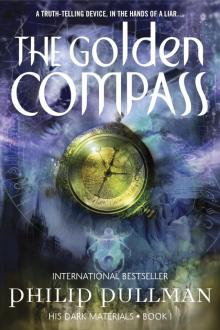 The Golden Compass
The Golden Compass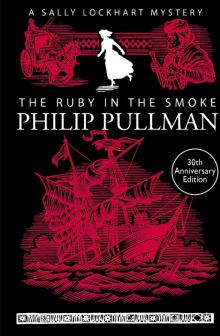 The Ruby in the Smoke
The Ruby in the Smoke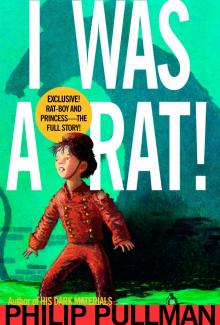 I Was a Rat!
I Was a Rat!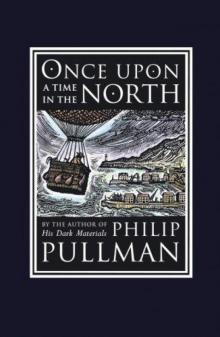 Once Upon a Time in the North
Once Upon a Time in the North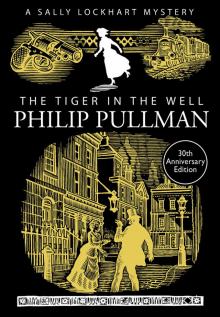 The Tiger in the Well
The Tiger in the Well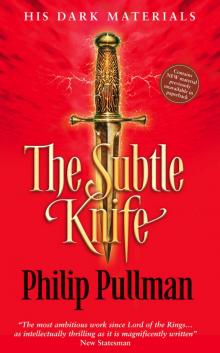 The Subtle Knife
The Subtle Knife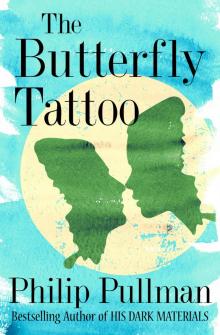 The Butterfly Tattoo
The Butterfly Tattoo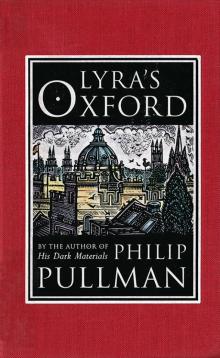 Lyra's Oxford
Lyra's Oxford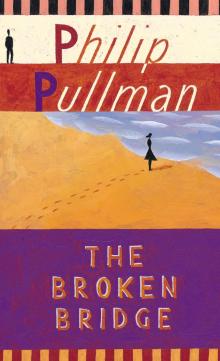 The Broken Bridge
The Broken Bridge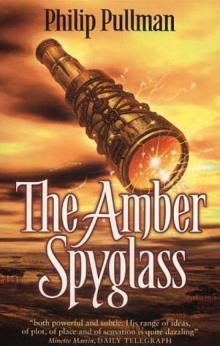 The Amber Spyglass
The Amber Spyglass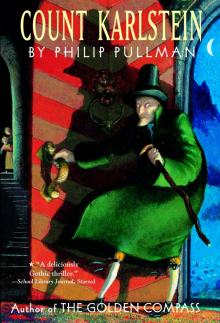 Count Karlstein
Count Karlstein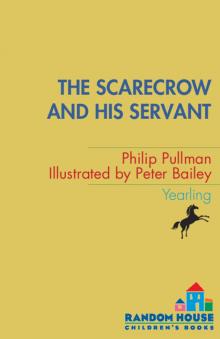 The Scarecrow and His Servant
The Scarecrow and His Servant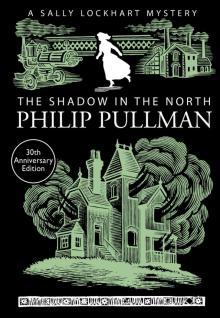 The Shadow in the North
The Shadow in the North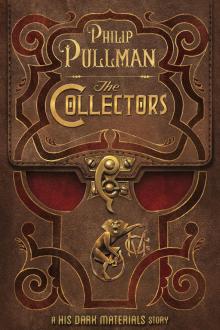 The Collectors
The Collectors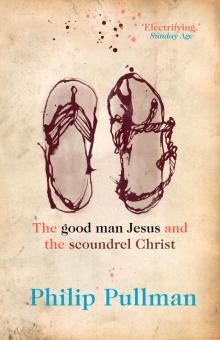 The Good Man Jesus and the Scoundrel Christ
The Good Man Jesus and the Scoundrel Christ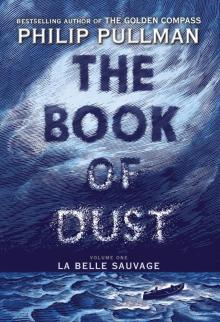 La Belle Sauvage
La Belle Sauvage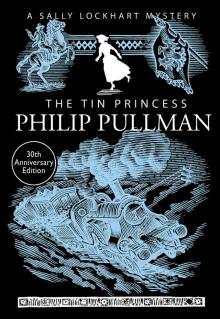 The Tin Princess
The Tin Princess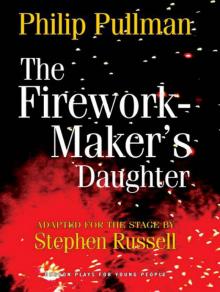 The Firework-Maker's Daughter
The Firework-Maker's Daughter The Book of Dust: The Secret Commonwealth (Book of Dust, Volume 2)
The Book of Dust: The Secret Commonwealth (Book of Dust, Volume 2)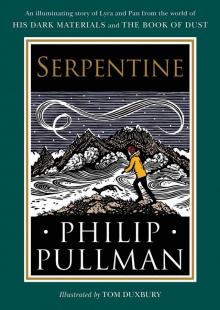 Serpentine
Serpentine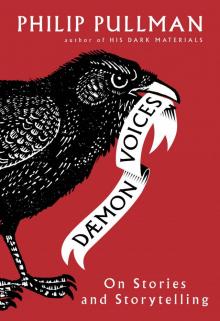 Daemon Voices
Daemon Voices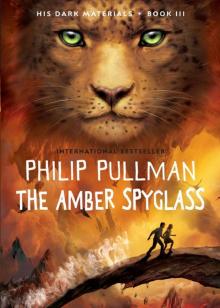 The Amber Spyglass: His Dark Materials
The Amber Spyglass: His Dark Materials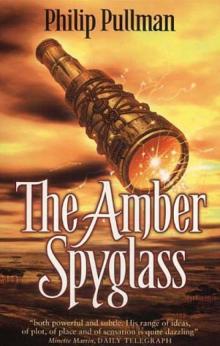 The Amber Spyglass hdm-3
The Amber Spyglass hdm-3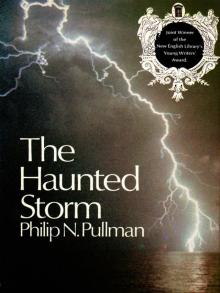 The Haunted Storm
The Haunted Storm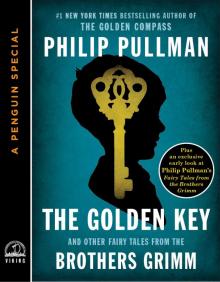 The Golden Key
The Golden Key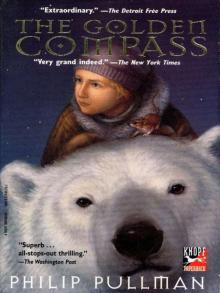 His Dark Materials 01 - The Golden Compass
His Dark Materials 01 - The Golden Compass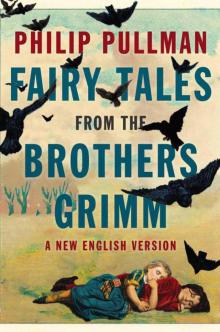 Fairy Tales from the Brothers Grimm: A New English Version
Fairy Tales from the Brothers Grimm: A New English Version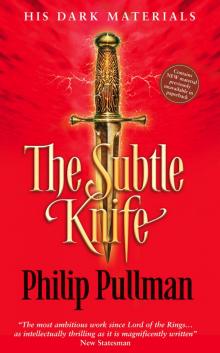 His Dark Materials 02 - The Subtle Knife
His Dark Materials 02 - The Subtle Knife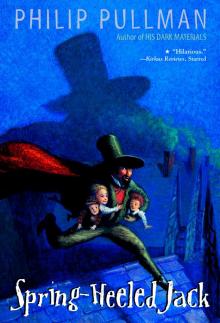 Spring-Heeled Jack
Spring-Heeled Jack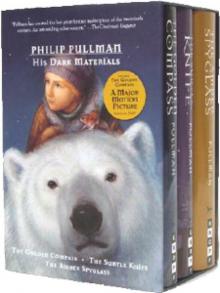 The Golden Compass hdm-1
The Golden Compass hdm-1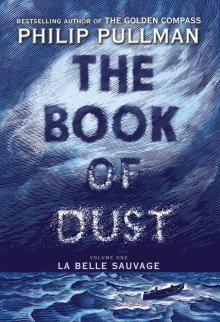 The Book of Dust, Volume 1
The Book of Dust, Volume 1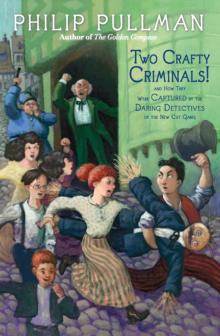 Two Crafty Criminals!
Two Crafty Criminals!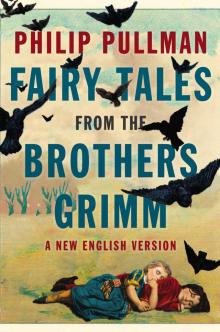 Fairy Tales from the Brothers Grimm
Fairy Tales from the Brothers Grimm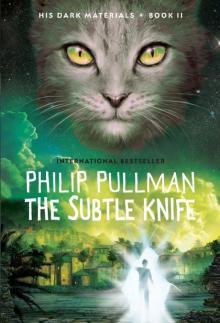 The Subtle Knife: His Dark Materials
The Subtle Knife: His Dark Materials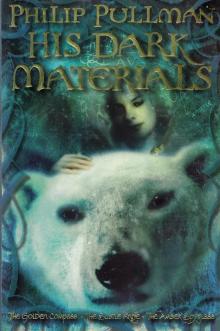 His Dark Materials Omnibus
His Dark Materials Omnibus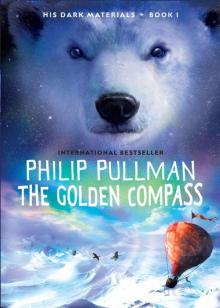 The Golden Compass: His Dark Materials
The Golden Compass: His Dark Materials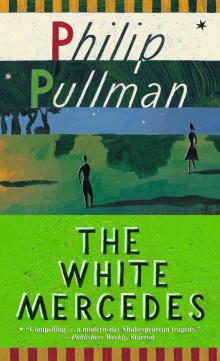 The White Mercedes
The White Mercedes